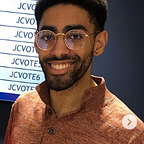Oh, Brother.
Imagine a world where all of our personal information is made available to the public.
There are people who post loads of data online without even realizing it. Whether intentional or not, each time that we post on social media we are putting out information about ourselves for anybody online to see. Each picture or video shares information about ourselves and our location. Even comments can be sourced back to an account or IP address, giving tech savvy users online with access to our posts that provide a wealth of information about us.
By oversharing our personal information, we lose a bit of agency over our own lives, and risk exploitation. Oversharing should not just be a concern of mine, but of my entire generation. I, and many others of Gen Z, were born into a technological world where it’s normal to share online.
Imagine a baby monitor, which records children’s movements and sends a video feed of what each child is doing to parents in order to protect the children and keep them safe. Every squeal, burp, and nap is recorded and sent to parents who can then watch over them from a distance.
Think this is a useful tool for parents who need an easy way to keep watch over their children while they are busy around the house? I’d agree. It is very helpful for parents. Parents have a need to monitor their children. Young children are not independent, and cannot fend for, or take care of themselves. However, what would happen to these children as they grew, if their parents never gave up their baby monitors? The children may never find independence for themselves.
Some theorize that we are moving towards a world in which the baby monitors are never turned off, where everyone is monitored, regardless of whether they choose to be or not. In the documentary We Live in Public, the entrepreneur Josh Harris prophesied that social media would be the catalyst of this society of monitorization. The documentary noted how he made an art
project which he called Quiet: We Live in Public. The project included Harris enrolling over a hundred New Yorkers in an Orwellian style capsule hotel where their basic needs are provided to them at no cost, other than all their personal information and actions.
During the project, Harris exclaimed “Everything is free, except your image. That we own”. The constant surveillance that Harris conducted on his volunteers (We Live in Public), reminded me of the telescreens, screens that both play video or propaganda, record, and listen to citizens, which are employed by the Totalitarian government in the novel 1984, by George Orwell. The theme of living in public is shared in both Harris’ project and 1984. In both We Live in Public, and 1984 all of the citizens information is monitored and used as a means to control them.
I have friends and peers who post videos, stories, or pictures from their daily lives every day, sharing tons of data with the general public. After watching We Live in Public, I’ve realized that people like my friends who live in public this way are in danger of being exploited since they make it easy to be monitored. Many users have had their social media accounts exploited and be used to stalk, steal, or harass them, both online and in person.
At a certain point I wonder, is that extra like or retweet really worth risking ongoing monitoring or exploitation?
Works Cited
Orwell, George. Nineteen Eighty Four: a Novel. American Printing House for the Blind, 1992.
Timoner, Ondi, director. WE LIVE IN PUBLIC. We Live in Public, 2009, weliveinpublic.blog.indiepixfilms.com/.
